YCCD Board Adopts 2020-2021 Budget
The Yuba Community College District 2020-2021 Proposed Adopted Budget was presented to the Governing Board at the October 8 Regular Board meeting. The State Chancellor’s Office issued an Executive Order FS 20-07 on May 13, 2020, which suspends the requirement that each community college district file a tentative budget with the county superintendent on or before the fist day of July each year and hold the public hearing and adopt a final budget at a subsequent meeting. The Executive Order established new deadlines for local budgets, annual financial and budget reports, and district audit reports due to the pandemic. The final budget adoption deadline was October 31, 2020.
The Governor signed the 2020-2021 Budget Act on June 30, 2020. The Budget Act prevents immediate cuts to the California Community College apportionment and categorial programs and defers $1.45 billion in California Community College funding to fiscal year 2021-22 of which $791 million would be triggered off if Congress approved a federal stimulus package with sufficient funding by October 15, 2020.
Major features of the States budget with impacts to the California Community College include:
- Cash Deferrals of $1.45 billion, $791 million triggered off if federal stimulus package is passed;
- No Cost of Living Adjustment (COLA) Funding;
- No enrollment growth funding;
- Student Centered Funding Formula (hold harmless provision) extension to 2023-24;
- $2.3 billion reallocation of state funding to buy down employer contribution rates for Cal STRS and CalPERS;
- Trailer bill language excludes COVID-19 related expenditures from the 50% law calculations;
- Reduces funding for Calbright college by $5 million ongoing and $40 million one-time;
- Approves Proposition 51 resources to support 25 new and 15 continuing capital outlay projects for state match. This includes re-appropriation of 23 approved projects in the May Revision;
- $10 million for ongoing support for immigrant legal services;
- $5.8 million for Dreamer resource liaisons;
- $120 million for COVID-19 Block Grant from funding sources:
- $54 million (federal funding) must be spent by December 30, 2020;
- $66 million (state funding) must be spent by June 30, 2022.
YCCD Impact by Cash Deferrals
The impact of the projected cash deferrals from the adopted state budget on the YCCD 2020-2021 budget include:
- $13.3 million cash deferral from 2020-2021;
- Negative cash flow position by June 2021;
- Paid over four months in 2021-2022;
- Negative cash flow expected beginning in July 2021;
- YCCD will need to borrow to meet cash flow needs by May 2021.
YCCD Unfunded Liabilities
- Retiree Health Benefits: $54 million
- Funds set aside for this liability include:
- $3.34 million invested in the Irrevocable Trust
- $3.34 million in Fund 69
- Solar Loan Balance: $14.7 million
- Central Plant Loan Balance: $3.16 million
- Budget assumes 2020-2021 debt service of: $1.9 million (for solar and central plant loans)
- Funds set aside for this liability include:
Revenues
State Revenue – Ongoing:
- District Apportionment funding driven by base, supplemental and student success allocations: $55,569,590 at 7,155 (assuming 3% deficit from State’s Projections)
- No Enrollment Growth
- California College Promise Expansion: $328,039 (Restricted)
- State Mandated reimbursements flat
- Lottery Income (reduction to both Unrestricted and restricted due to enrollment declines): $437,100
Expenditures
- Salary expenses budgeted to cover all board approved salary changes;
- Step and column increases;
- Longevity increments for all employees;
- Includes Enrollment Management Efficiency Savings of $1.2 million;
- Health and Welfare benefit costs will remain at the prior year level (no increase);
- Other payroll benefits (SUI, Worker’s Compensation and Retiree Benefits) and budgeted based on the rates established by the regulatory agencies;
- Supplies and materials, other operating expenses and services, capital outlay, and other outgo amounts are based on the District’s budget process;
- Fixed expenses (maintenance agreements, utilities, postage, rent, transportation, etc.) increased slightly based on actual costs.
Fund Balance
- District projected ending fund balance for 2020-201: 18.92%
- Inclusive of reserves at 8% per Board Policy;
- Contingency for Revenue Shortfall: $3,415,766;
- Innovation Fund: $200,000;
- Other Post-Employment Benefits (OPEB): $3,083,572
YCCD General Fund Unrestricted – Fund 11
Beginning Balance $ 11,288,246
Revenues $ 61,638,892
Expenditures $ 61,322,037
Ending/Designated Fund Balance $11,605,101 (18.92%)
Associated Student Governments Appoint 20-21 Student Trustees
The Woodland Community College Associated Student Government (ASWCC) and the Yuba College Associated Student Government (ASYC) have appointed student trustees to represent each college for the 2020-2021 academic year.
Each spring the students enrolled in each college elect a student trustee during the general election held for that purpose. Each student trustee serves a term of one year commencing June 1 and ending May 31 of the following year. Due to the COVID-19 pandemic, Yuba College and Woodland Community College were unable to elect a student trustee using the traditional process. A special election was held at each college, and both were unsuccessful in securing student trustee representatives.
Board Policy 2105: Student Trustee Elections and Education Code Section 76060 allows for the governing board to authorize the officers of student body associations to appoint a student to serve the remainder of the term.
 The ASWCC and ASLCC appointed Donovan Hutchins as the 2020-2021 student trustee for WCC. Donovan is the first dual enrolled student to serve as a student trustee for YCCD. Donovan plans on attaining an engineering degree in either architecture or agriculture. Donovan was sworn into office at the October 8, 2020 Regular Board meeting.
The ASWCC and ASLCC appointed Donovan Hutchins as the 2020-2021 student trustee for WCC. Donovan is the first dual enrolled student to serve as a student trustee for YCCD. Donovan plans on attaining an engineering degree in either architecture or agriculture. Donovan was sworn into office at the October 8, 2020 Regular Board meeting.
The ASYC appointed Rebecca Hawthorne as the 2020-2021. Rebecca is a third year Yuba College student working toward an associate degree in biology, natural science, and chemistry. Rebecca plans on transferring to UC Davis to further her education in genetics and genomics with a hope to participate in the Cancer Epigenetics research to help with cancer prevention. Rebecca was sworn into office at the November 12, 2020 Regular Board meeting.
Yuba College student working toward an associate degree in biology, natural science, and chemistry. Rebecca plans on transferring to UC Davis to further her education in genetics and genomics with a hope to participate in the Cancer Epigenetics research to help with cancer prevention. Rebecca was sworn into office at the November 12, 2020 Regular Board meeting.
CEO Tenure and Retention
The Community College League of California recently released the 9th edition of their CEO Tenure and Retention Study. The study shows that 45% of CEOs in California community colleges are women and 16% identify as Latinx. The study also suggests that there is a link between CEO tenure and organizational stability. Additional key findings include:
- Four of the five longest-serving leaders are women;
- In April 2020, just over 45% of CEOs were women, marking the largest number of female CEOs in the CCC system (59);
- 3% of CEOs identify as Latinx, making CCC significantly more diverse than the national average;
- In the last 10 years, the average tenure of a CEO was just over 5 years;
- Of those who left a CEO position in the previous 10 years: 46% retired or passed away in office; 21% were either released or left for other reasons; and 31% took another position.
During their monthly Governmental Relations Webinar in October, the League presented the report and the recently developed online dashboard which allows visitors dig deeper into the data included in the report. The Dashboard can be found at www.ccleague.org.CEOtenure and the CEO Tenure and Retention Study can be found here. Additionally, the webinar featured three CEOs from California community colleges. Yuba College President Dotson joined San Diego CCD Chancellor Constance Carrol and Cerritos CCD Superintendent/President Jose Fierro as they reflected on the biennial study.
District Newsletter
The District Newsletter is intended to share updates from various participatory District-wide decision-making groups, Board Policies and Administrative Procedures, updates from Cabinet, District Services, Fiscal Services, Information Technology, M&O, and Human Resources. The November 2020 District Newsletter is available here: November 2020 District Newsletter.
Legislative Update
Bills of Interest
There were 208 bills related to higher education considered by the California Legislature. COVID-19 limited the 2020 legislative priorities and only 48 bills were signed by the Governor. Bills of interest include:
Financial Aid:
- AB 376 (Stone) – Establishes the Student Borrower Bill of Rights and imposes new requirements on student loan servicers.
- AB2416 (Gabriel) – Allows students to appeal their loss of financial aid if they fail to meet satisfactory academic progress due to homelessness.
- AB3137 (Voepel) – Permits Promise students who are members of the Armed Forces to withdraw and re-enroll in the program without losing eligibility if they are called to serve.
- AB2884 (Berman) – Permits community college districts to utilize restricted lottery funds to provide food and housing assistance to students.
Equal Opportunity
- ACA 5 (Weber) – Would repeal Proposition 209 (1996), which prohibited race-conscious policies in the areas of public employment, public education, and public contracting. Supported by the Board of Governors and aims to match diversity of faculty with the diversity of our students and remedy the continuing effects of past discrimination.
Ethnic Studies
- AB1460 (Weber) – Requires the CSU to provide courses in ethnic studies at each of its campuses by the 2021-22 academic year and requires students to complete a three-unit course as a graduation requirement commencing with the 2024-25 academic year.
Title IX:
- SB493 (Jackson) – Requires postsecondary educational institutions to adopt rules and procedures to prevent sexual harassment. Higher education institutions must also adopt and post on their web sites grievance procedures to resolve complaints of sexual harassment.
A Plan for An Equitable Recovery – 2021-22 Shared Advocacy Request
The Board of Governors 2021-2022 Budget Request includes:
- Protection of the 2.1 million students from budget cuts. Funding protections would enable responsive education, improve the online education ecosystem, and prepare the workforce needed for California’s recovery.
- Online Education Infrastructure. Provide a robust and equitable online infrastructure for all CCC students and faculty during the statewide emergency by expanding technical support, increasing online tutoring and other critical student support services.
- Expansion of Mental Health Services. For many young adults, the California Community Colleges represent their best, and perhaps only, access point for mental health services. It’s time to provide more proposition 63 funds to deliver quality mental health services to students.
- System Wide Broadband Connectivity. Support California Community Colleges in addressing the digital divide through investment in essential infrastructure for broadband connectivity.
- Emergency Response Block Grants. Community Colleges need flexible block grants for costs associated with addressing the COVID-19 pandemic. These grants will help scale innovating education models, direct supports for students, meet equipment needs, improve professional develop of faculty and staff and ensure continuity of education.
- Invest in the Diversification of Faculty and Staff. Improving faculty and staff diversity is vital to ensuring students feel connected. This means accelerating faculty diversity hiring, expanding full-time faculty and support for part-time faculty. Advance anti-racism in curriculum while keeping transfer paths seamless.
Prop 98 Requests
Funding to meet current obligations and provide cost adjustments: $150 million ongoing
Implementation of Faculty and Staff Diversity Taskforce Recommendations: $77 million (one-time and ongoing)
Part-Time Faculty Support: $15 million ongoing
Student Emergency Supports and Emergency Response Block Grant: $50 million one-time
Online Education & Supports Infrastructure: $31.5 million (one-time and ongoing)
Non-Prop 98 Requests
Board of Governors’ Capital Outlay Program: $727 million (one-time bond funds)
Expansion of Mental Health Services (Prop 65): $10 million ongoing
Cal Grant Reform : Policy Changes
Core Support for CCCCO Operations: $800,000 ongoing
Chancellor’s Calendar – November 2020
2 – YCCD Town Hall
3 – Chancellors Executive Cabinet
3 – CCLC weekly CEO Webinar
3 – District Consultation Council (DC3) Meeting
4 – Meetings of the Facilities/Audit, Finance and Policy/Student Access & Success Committees and Agenda-setting
4 – Meeting with Trustee Ortiz
4 – YCCD Foundation Board Meeting
5 – District, Colleges, Academic Senate Leadership (DCAS) Meeting
5 – CCLC Weekly Trustee Webinar
5 – Meeting with Trustee Pasquale
5 – ACCCA Board Executive Committee Meeting
9 – Planning Meeting to discuss ACCCA/CCLC “Aspiring CEO Program”
9 – Trustee Fellowship Intersession Webinar
9 – “Launchboard” Webinar Series – Strong Workforce Program
9 – Meeting with Trustee Teagarden
10– Chancellor’s Cabinet
10 – CCLC CEO Webinar
10 – Student Trustee Orientation Session #2
11 – Veterans Day (Holiday)
11 – Guest at YC’s Alumni & Friends Wine Wednesday (Virtual)
12 – CCLC Trustee Webinar
12 – Meeting with Trustee Alves
12 – Special Closed Session Board Meeting
12 – Regular Meeting of the Governing Board
13 – Tentative State-wide CEO Meeting (Virtual)
13 – Meeting of the SCFF CEO Task Force
16 & 17 – Board of Governors Meeting (Virtual)
16 – Meeting with Trustee Teagarden
17 – 20 – CCLC Annual Convention (Virtual)
17 – Chancellor’s Cabinet
17 – CCLC weekly CEO Webinar
18 – District Management Council (DMC) monthly meeting
18 – CCLC Convention for “Aspiring CEO Program”
18 – YCCD Retirement Board of Authority Meeting
19 – District, Colleges, Academic Senate Leadership (DCAS) Meeting
19 – CCLC Weekly Trustee Webinar

